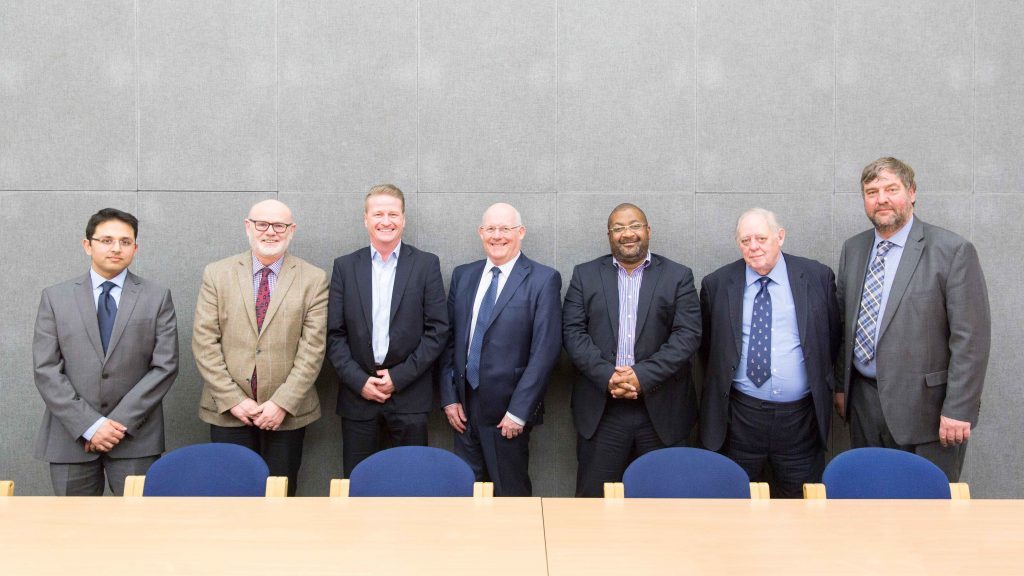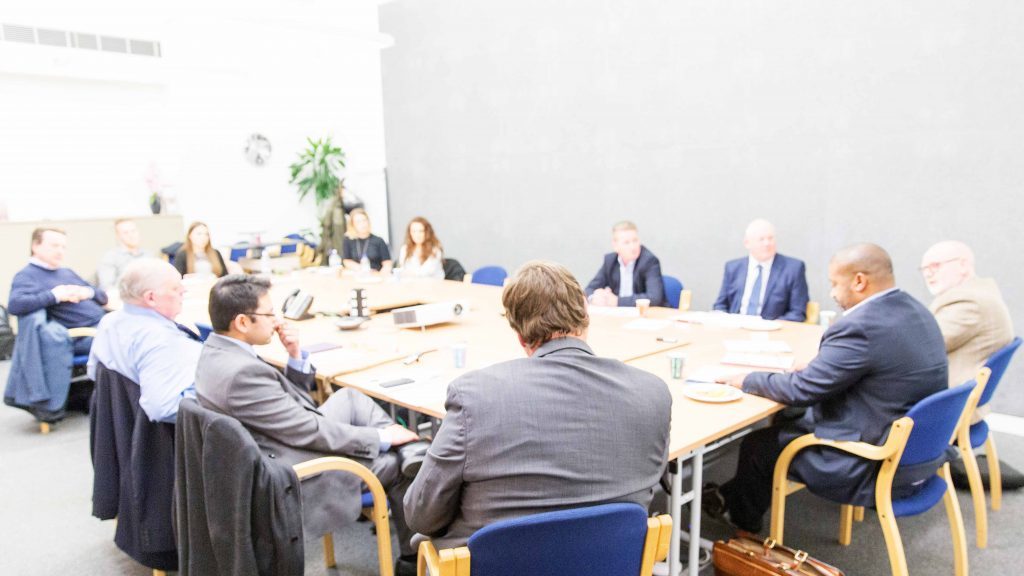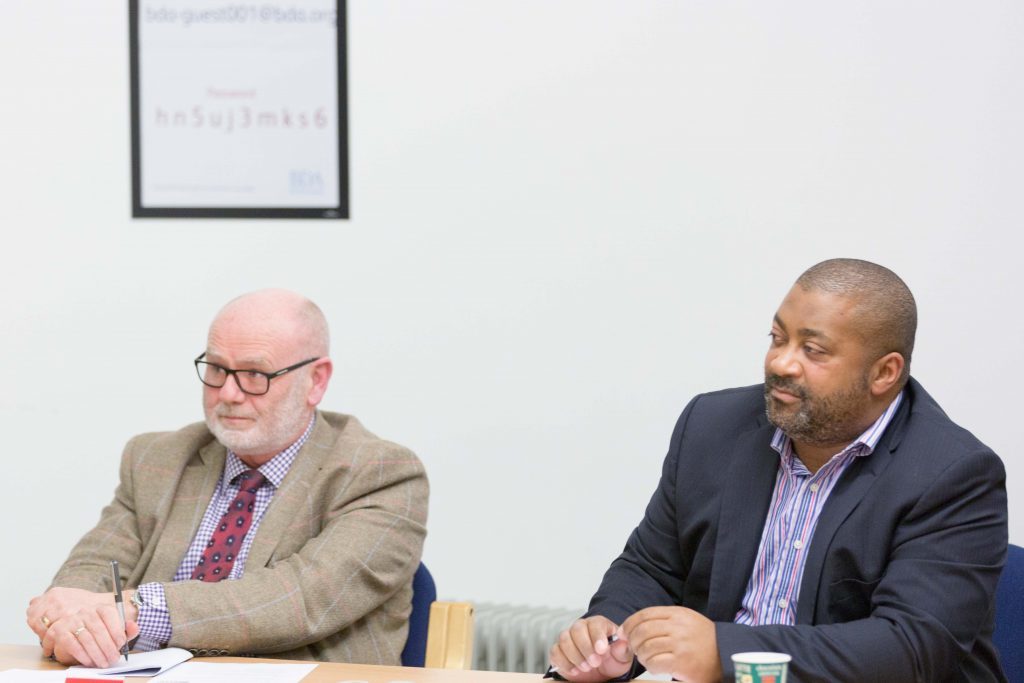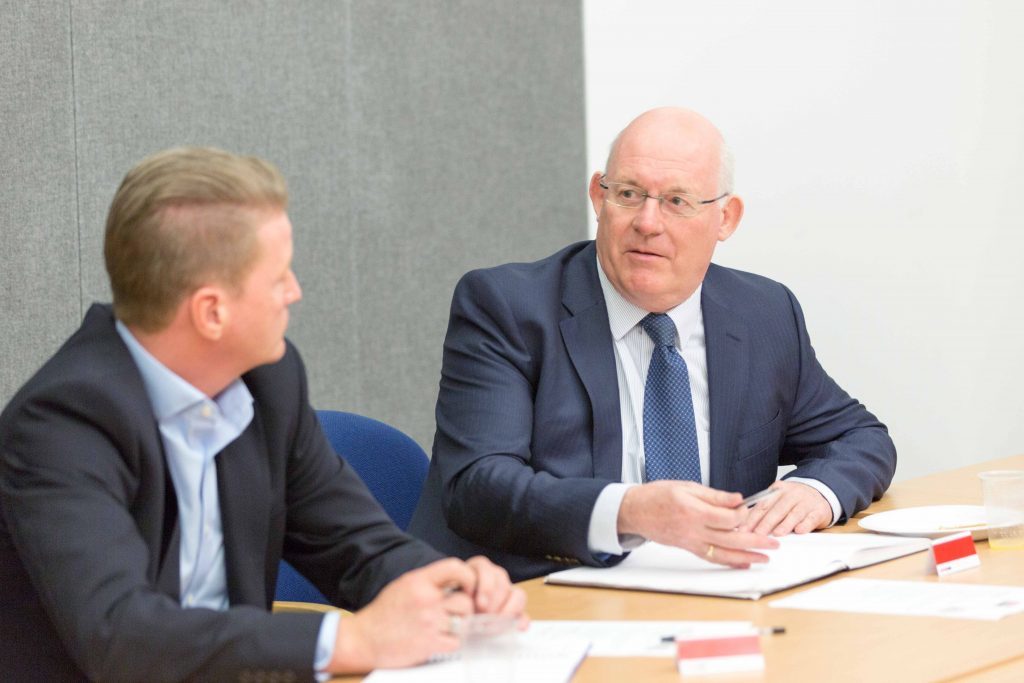 How will Brexit affect the profession? Charlotte Lloyd reports on the Brexit discussion at Dentistry’s recently held Dental Politics: The Big Debate.
How will Brexit affect the profession? Charlotte Lloyd reports on the Brexit discussion at Dentistry’s recently held Dental Politics: The Big Debate.
After an insightful and lively debate last year, Dentistry held Dental Politics: The Big Debate for a second time, bringing together some of the dental profession’s key opinion leaders to discuss major political issues facing UK dentists.
Held in early March at the British Dental Association on Wimpole Street, London, the debate’s aim was to hash out these major political issues and discuss the effect of these on the dental profession.
Key opinion leaders
The debate, chaired by Dentistry’s editor Julian English, was attended by Henrik Overgaard-Nielsen, chairman of the BDA’s General Dental Practice Committee; Eddie Crouch, vice chair of the BDA Principal Executive Committee; Eddie Coyle, head of clinical operations and commissioning at Oasis Dental Care; John Milne, senior national dental advisor at the Care Quality Commission; Neel Kothari, practice owner and Dentistry columnist Michael Watson.
Each topic discussed at The Big Debate was selected based on impact on the dental profession at present. The topics were:
- The implications of Brexit
- Dental corporates
- The GDC
- The new contract
- Contract allocations.
Over the coming weeks and months, we will be dissecting each topic discussed in more detail, beginning with this article on Brexit.
The implications of Brexit
 After the triggering of Article 50, the negotiations on the country’s exit from the European Union will begin, but until then the road ahead is unclear. With much debate surrounding the impact leaving the EU may have on the profession, we asked our panel just how much Brexit might affect the provision of dentistry.
After the triggering of Article 50, the negotiations on the country’s exit from the European Union will begin, but until then the road ahead is unclear. With much debate surrounding the impact leaving the EU may have on the profession, we asked our panel just how much Brexit might affect the provision of dentistry.
The debate kicked off with an introduction from Julian English, who posed the question: ‘Is there going to be a workforce issue and will we see a mass exodus of the dentists that are here from Europe?’ Practice owner, Neel Kothari, quickly responded stating his uncertainties of the future and the impact of the value of the pound. ‘We don’t really know what the outlook is going to be. We also don’t know what the differences will be for people coming in from Europe and outside of Europe too. If we end up in a situation where the strength of the pound stabilises or improves – that will also have a big pulling factor.’
One main concern of the panel centred on the fate of dental professionals from the EU that live and work in the UK. Eddie Coyle highlighted: ‘I think what would be useful is for European workers, who have committed to doing a great job, to know whether they are going to be under any pressure. I have a personal friend who is Portuguese and has a dual passport, has been here for 10 years, his family are here, his wife is a dentist, he pays his tax in this country, he views this as home, he does a fantastic job for his patients – he needs to know. I’m sure he’s not alone.’
John Milne agreed: ‘I think people need to be given some assurance that they have a future, that they’re welcome to deliver their professional skills and as we’ve just heard I’m sure many of them are doing a great job.’
When discussing what the government’s actions will be as a result of Brexit, Eddie Crouch from the BDA said: ‘A government would have to be absolutely, completely mad to throw out all of the people who are providing a service – they’re never going to do that.’
Take home pay
 And on the topic of pay he continued: ‘I mean crikey, pay has been dropping for dentists for the last five to 10 years because of the pay constraints of the public sector and it hasn’t stopped people coming in from the EU – even with a reduction in income in this country. A lot of these people are not only working as associates, some of them have invested and bought practices – what’s going to happen to them?’
And on the topic of pay he continued: ‘I mean crikey, pay has been dropping for dentists for the last five to 10 years because of the pay constraints of the public sector and it hasn’t stopped people coming in from the EU – even with a reduction in income in this country. A lot of these people are not only working as associates, some of them have invested and bought practices – what’s going to happen to them?’
Henrik Overgaard-Nielsen, however, spun the debate around and raised the point of less competition for jobs as a result of fewer dentists. ‘We’ve seen a 35% reduction in take home pay for dentists and one of the reasons is because there has been a surplus of dentists in this country.’
He also dismissed the potential of EU citizens having to leave the UK after Brexit. ‘I do agree with what has been said. I can’t see the government throwing out people from the EU. Every politician that I have ever heard are all saying that people should be allowed to stay here if they are here already.’
To conclude the discussion on pay, Neel Kothari gave a broader view: ‘Britain is still a fairly wealthy country and that’s reflected in the pay, but we must also remember that it’s not just people from Europe that are coming to the UK. Outside of Europe there are massive changes in the world – we may get people from America coming one day.’
The cost of materials
 Talk turned to the cost of materials and whether the panel had noticed an increase since the Brexit vote. Eddie Coyle from Oasis responded: ‘We’ve noticed from a major supplier [that prices are increasing], who has been holding off on increasing costs because of the fluctuation in the Euro in particular, and that’s now becoming a very real impact.’
Talk turned to the cost of materials and whether the panel had noticed an increase since the Brexit vote. Eddie Coyle from Oasis responded: ‘We’ve noticed from a major supplier [that prices are increasing], who has been holding off on increasing costs because of the fluctuation in the Euro in particular, and that’s now becoming a very real impact.’
As Eddie Crouch suggested that it’s difficult to pin down suppliers on prices, Neel commented: ‘One of the reasons why companies don’t publish their prices online or in catalogues is because a lot of practices have selective discounts applied, and group buying discounst. Different people are on different rates and I think a lot of the suppliers do have a bit of a monopoly.’
Moreover, Neel Kothari questioned the status of the CE mark when Article 50 is triggered. At present, the CE mark determines whether a product meets health and safety, and environmental regulations. Will this affect the price of products? ‘At the moment, everything that is supplied to the UK market has to be supplied with a CE mark and that does put up a lot of prices. These products are coming in at a very high premium compared to what other countries are paying. Now, all of a sudden, if we are not bound by the CE market, that’s not necessarily a quality market, that’s a trading standards thing. Potentially we’ll be able to trade with other countries like Brazil.’
Eddie Coyle pointed to the price difference in materials purchased from the Republic of Ireland and the UK. When questioned on whether the price was lower or higher, Eddie responded with lower. ‘We also have business in the Republic of Ireland and what we pay for materials and equipment is significantly different to that in the UK.’
Agreeing that the market is an interesting place, Eddie Crouch mentioned the Denpro group purchasing scheme in Scotland: ‘Recently, they’ve been working to provide a global supplier for Scottish NHS dentistry and all the other companies have undercut them.
‘I suppose it worked in a way that it actually drove the price down a little bit, but what they anticipated of having a mass buying market that would drive the price down has just been matched by the other companies who are not involved in the project.’
John Milne brought the discussion to a close by stating how he thought the quality of products will be measured post-Article 50. ‘I don’t think we know what the given stance is going to be about quality standards because there may well be, as they call it, an act enabled which will simply just transfer European law back to British law.
‘It may be that the exact same quality standards apply as they do now. I think it’s quite a complex area and I’m not so sure we’ll be as deregulated as some might hope.’
If you have any thoughts or comments on any of the topics discussed at Dental Politics: The Big Debate, tweet them to @Dentistry using the hashtag #BigDebate, or email [email protected].
Henrik Overgaard-Nielsen is the chair of the BDA’s General Dental Practice Committee. Based in Fulham, London, Henrik started an NHS practice in 1999 and since then it has treated over 100,000 NHS patients. He previously served as vice chair to the GDPC.
Neel Kothari joined High Street Dental Practice in 2010 and has committed his long-term future to the practice. He carries out a range of general family dentistry, as well as more advanced care such as cosmetic dentistry and dental implants. He undertook his dental training at Bristol University and has a particular interest in dental implants and treating nervous patients. Neel writes for Dentistry on issues concerning the dental profession and supporting patients’ rights.
John Milne qualified from Leeds Dental Institute in 1980. Formerly a clinical assistant in orthodontics at Pinderfields Hospital, John is now a dental practitioner based near Wakefield in west Yorkshire – he is a partner in a mainly NHS practice. John is a former chair of the BDA’s General Dental Practice Committee and the current dental adviser for the CQC. John was also dental practice adviser to Wakefield PCT for many years.
Michael Watson qualified 50 years ago and started his career in the Royal Army Dental Corps. Retiring in 1979 he set up a general dental practice in Manningtree. In the ‘80s he became secretary of the GDPA and was the first editor of its journal, General Dental Practitioner. Moving to the BDA in 1991, Michael spent the rest if his career as a political adviser and editing BDA news. Since retiring he has continued writing and is a regular contributor to and news correspondent for Dentistry.
Eddie Crouch works in two practices in Birmingham. He is vice chair of the Birmingham Local Dental Committee, vice chair of the British Dental Association Principal Executive Committee and past chair of Central Counties Branch of the British Dental Association. Aside from his time practising, Eddie has also worked on projects associated with NHS contract reform, which means he’s familiar with the way the system works and has seen how it has changed over the years.
Eddie Coyle is head of clinical operations and commissioning at Oasis Dental Care, and is also a practising dentist. With a clear focus on the ethical, safe delivery of dental care, Eddie is significantly involved in ensuring patient safety and quality care within the regulatory frameworks, leading the team responsible for the day-to-day clinical running of the Oasis estate and maintaining standards.


